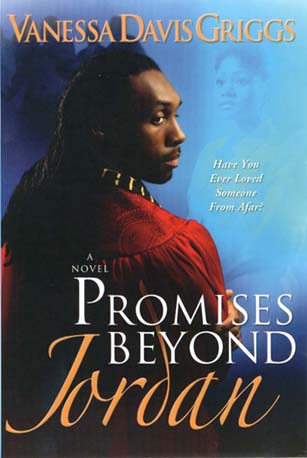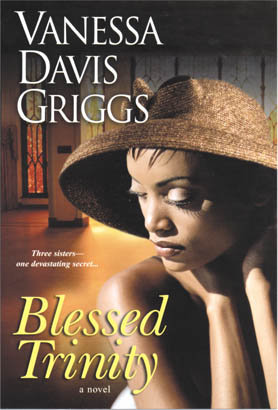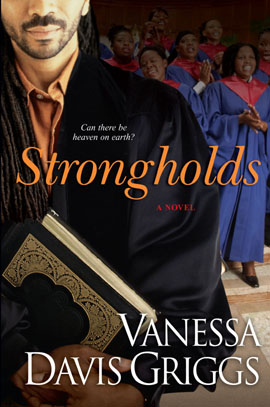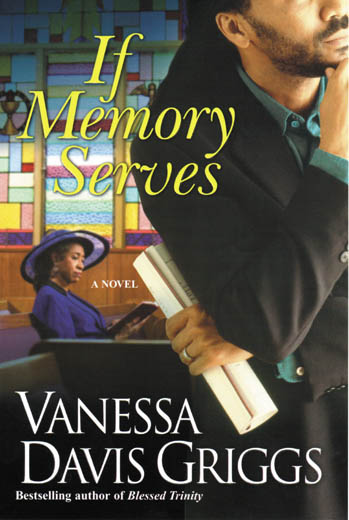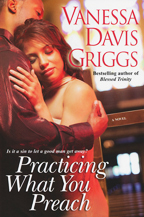From Whose Point of View?
In writing (fiction especially), the writer has to determine how best to tell the story. More to the point, the point-of-view (POV): first person, second person, third person, third person limited, or omniscient. The most popular points-of-view are: first person, third person, and omniscient.
First person uses the word “I” for the narrative character’s tag causing the story to feel more personable. A tag represents who is speaking. “Come here,” I said. “I” is when the focus is all about me (or the me character).
Third person uses he, she, they, it, or the characters’ names and is less intimate. “Are you interested in going with me?” she asked. “Not really,” he said. With third person, readers know what each character is doing, but we’re limited by knowing only what the characters in that particular scene can see. With scene changes, focusing on a different character can create a shift in who the leading character is at that time. First and third person point-of-view can be tricky since the character must have access to what’s being done or said or be told by someone who has/had knowledge of the event.
The omniscient point-of-view means the story is being told from an all-knowing standpoint. This is referred to as the God point-of-view. Omniscient is all-seeing, all-knowing, everywhere, all at the same time. Whenever a story is written from this point-of-view, characters can be in different places, yet whatever any of them is doing is known and can be written about (even their private thoughts). The omniscient point-of-view knows all and can legally as well as technically document this knowledge in the story.
So it is with God: God is omniscient. He sees everything each of us is doing, yes, even at the same time. He knows every one of our thoughts, even as we think simultaneously. There is no scene change rule in play, because God is omniscient.
First person is more intimate but limited since the character can only speak from the knowledge he/she knows. The focus is all about that character and how that character sees and perceives something (right or wrong as we all have our special filters that aren’t always correct in our assessments).
Second person is using the word “you” which is not a popular point-of-view in the writing world, but it’s definitely used in real life. “You hurt my feelings.” “You don’t treat me right.” Granted, this is not a true example of how a person writing in second person would use the word “you” as a tag in second person. It would be more like, “Come here,” you said. But you didn’t; you merely walked away. However, the point I’d like you to see here is how in real life, we love to use the word “you” to place the blame or focus attention on others for whatever might be happening or not (usually, it’s the bad things happening) in our lives.
Third person frees the writer to be able to show more of what’s going on but is less personable than first person. That’s why we have what is called third person limited. Third person limited allows the character to be like a first person character telling the story from their point-of-view intimately, then switching back to true third person mode when desired. It permits other characters to also become like a first person character.
The omniscient point-of-view does not solely regard one individual. Omniscient sees the whole picture although the information may not always be revealed or revealed immediately. Omniscient sees all and knows the thoughts and feelings of each character.
God sees each of us and knows our thoughts and feelings. He views the whole picture, not just our microscopic, first-person part. He knows everything, and He knows what is best for us in the entire scheme of things.
In life, we must learn to not write our story only from the first person (I) point-of-view, but to allow the Omniscient (who sees all and knows all) to direct us in the way we should go. Many of us get upset when things don’t work out the way we’d prefer them to, but I have learned to trust the Author and the Finisher of my faith; to allow Him to complete the work He has begun in me.
So stop getting upset when things don’t seem to be working your way, especially when you know without a doubt that your life story is in the hands of the One who was before Genesis and will be here well after Revelation; the One who is penning the rest of my, and I pray your, first-person, unwritten story.
So the next time you believe you’re losing, and I really don’t mean to spoil the ending of the story for you, but I flipped to the end—and guess what? You win! You are more than a conqueror. So be of good cheer, Jesus has overcome the world.
Are you saved?
Then regardless of what point-of-view might be in play—first, second, third, limited third—in The End you win.
Not saved yet?
Well, you can change your present ending right this minute (which has been promised to be quite hot and not in a good way either) by believing in your heart Jesus is the Son of God, confessing your sins, and accepting Jesus as your personal Savior.
From any point-of-view, Jesus paid the price, and in the end, you win!
Copyright © 2006 Vanessa Davis Griggs
Vanessa Davis Griggs is a speaker and the author of four published novels: Destiny Unlimited, The Rose of Jericho, Promises Beyond Jordan, and Wings of Grace. For more information or to visit her Web site, go to: www.VanessaDavisGriggs.com. E-mail: Vanessa@VanessaDavisGriggs.com
Know Your Character
When God asked Satan during a conversation in the book of Job, “From whence cometh thou?”; Satan’s answer was, “From going to and fro in the earth, and from walking up and down in it.” Then God said, “Hast thou considered my servant Job?”
When God told Jonah to go to Ninevah and cry against it for their wickedness had come up before Him, Jonah didn’t want to, so he fled to Tarshish. After three days in the belly of a great fish, Jonah was told again to go to Ninevah; that time he complied.
When God gave His only begotten Son to die on the cross for our sins—Jesus, born of a woman (Son of God and Son of man), God knew no matter how difficult the task to come, how bitter the cup, Jesus would finish it.
When Mary Magdalene (and no, she was not a prostitute as was once widely and erroneously circulated throughout the Christian community) went that Sunday morning to the tomb where she “had a little talk with Jesus” after He arose, God was not surprised.
God knows all about us. He knows His character, and His characters.
Writing the Vision, Making it Plain has a dual mission: To inspire and encourage you in whatever vision, dream, or goal you may pursue, while teaching techniques applicable in the art of writing.
As an author, you should have some idea—from the beginning—of your characters’ character and their likely reaction within a setting or situation in which they are placed. Likely reaction. There is still, of course, free will.
In your case, this might require writing or typing all the pertinent information about them: age, height, weight, race, education, jobs held, family, friends, Christian or non, their idiosyncrasies, temperament, beliefs, disappointments, victories. One reason is for future reference. What color are your characters’ eyes? Hair? Any identifying marks? The list goes on. All of these things, which can and do, affect a character, and how they respond in a particular setting or situation.
Also, writing this information down will help you later to keep track. You wouldn’t want to give your character green eyes in the beginning of a story, only to end up in the middle of the story with them sporting brown ones (sans contact lenses).
For instance, I have a character named George Landris. He originally showed up (I mean this literally) in a novel I wrote called The Rose of Jericho as a minor character. Even minor characters need an information sheet; you never know what may transpire in the future. As in real life, people we think of as being minor may surprise us and turn out to be quite major later.
This is precisely what happened with George Landris: he became a major character in my next novel, Promises Beyond Jordan. And although I said he would not play a major role in the follow-up novel, Wings of Grace—that proved not to be the case at all.
My point in bringing up George Landris: There are certain things I, as the creator…the author, know about him. Things I might like or not about him (his hair was one of those things I didn’t care for in the beginning—he sported dreadlocks). But I know him well enough to know what he will most likely do in certain situations. (Just as God knows what we’ll likely do—“Have you tried my servant Job?”) And as much as I’d like to make Landris do what I want in the way I want, or as timely as I’d prefer; I allow him to be himself and work it out.
Know your character.
Characters who commune with me consistently, I know more intimately. Do I love all of them—even the bad, misguided, or evil ones? I’ll tell you what I do love: I love the fact that they each carry out their assignments as they’ve been given. I absolutely love when they execute them well. And don’t we, as God’s creations, each have assignments?
There is this song I have fallen in love with recently. The first time I heard it, I cried like a baby. It’s by Israel & New Breed; I heard it on the Alive in South Africa CD. The song: He Knows My Name.
Think about it. Billions upon trillions of people who have come through this earthly realm, and GOD KNOWS my name! And He hears me. You’d better believe I don’t care about religion when it comes to my Creator. I’m totally and completely about, and into, the relationship: My relationship with God the Father, the Son, and the Holy Spirit.
When I’m in a particular setting or situation—good or bad; I can walk in the confidence that God knows me, and that He trusts me enough to know—not only that I can handle it—but that I will come through whatever it is victoriously! So if you’re interested in writing, KNOW YOUR CHARACTER(S). If you’re not interested in writing, but you have a vision, a goal, or a dream you’re pursuing in life—then get yourself a notebook of paper, get on your computer, whatever or however you choose to do it: Then write your vision, and make it plain. After that, run with it! Run with it, KNOWING YOUR CHARACTER.
Copyright © 2006 Vanessa Davis Griggs
Vanessa Davis Griggs is a speaker and the author of four published novels: Destiny Unlimited, The Rose of Jericho, Promises Beyond Jordan, and Wings of Grace. For more information or to visit her Web site, go to: www.VanessaDavisGriggs.com. E-mail: Vanessa@VanessaDavisGriggs.com
Writing the Vision
The Bible tells us where there is no vision, the people perish.
At the beginning of this year, God put it on my heart to create a Heart’s Desire card. He instructed me to write down twelve desires I have this year. I was about to write them on an index card when he further informed me this was not just for me only, but to share it with other members of the church congregation.
So I created a Heart’s Desire card on my computer and used the scripture reference from Psalm 37:4: Delight yourself also in the Lord and He will give you the desires of your heart and shared it. Aware that in life we may have goals, dreams, and aspirations; what gives these things a boost of power is writing them down and, as Habakkuk 2:2 states, to make it plain. There’s just something about writing your vision and making it plain so that there is no room for misinterpretation.
We serve such a big God—there’s nothing too hard for him. Our problem is not that God can’t handle the big things, but that in many cases, we don’t dream big enough. God is looking for willing vessels so that He can show Himself strong. Therefore, when I come with my dreams and visions, I come specific. I don’t just say, “I desire a car.” I let Him know the make, model, color, and any additional desired options.
Think about it. Do you really think God is impressed with your little, trying-to-be-humble-acting requests? Sure, it sounds so spiritual when you say, “God, just give me a car. Anything you want me to have is fine with me. Just as long as it gets me from point A to point B, I’ll be happy and content.”
No, I’m not saying there’s anything wrong with this prayer. What I am saying is, God is asking you, “What do you desire?” He likes it when you’re crystal-clear. Does he really care whether you ask Him for a VW Beetle as opposed to a Mercedes? Not really. Either of these is doable for God. When you tell Him specifically what you desire, do you really think God is scratching His head and saying, “Now how am I going to pull that one off?” No.
So I write my true desires down because He has already told me He will give me the desires of MY heart. Not your heart. Not what you think I should have. Not what you think is acceptable for me as a Christian. What I desire. The desires of my heart.
Now, what do you desire?
When you write things down, it makes it more difficult for you to go back and try to wriggle your way out of what you said. That’s why writing it down is important. It puts it out there for all to see (so to speak). Your vision at that point becomes manifested in the form of words. It is now before you, so as you run your race, you see it.
I wrote my desires down as did many in our congregation. We prayed about them before we wrote down anything. I believe God gives us a desire for something, before He gives us the desire. No, that was not double-talk. God PUTS the desire in you to desire a thing. Then He GIVES you the desire (makes the desire totally manifest in your life).
I wrote my desires, placed them on my mirror so every day, I am reminded of them. When a desire is manifested, I write the word VICTORY in big, red letters over it.
Now back to you. In your life, you should have desires. You should have a vision. Have you written anything down?
It’s like writing a story. You may see things clearly in your mind. You may find yourself watching your characters perform certain acts in your imagination. But it only becomes real, more than just to you anyway, when you outwardly record it in some way so that others can also experience what you see in your mind.
I write my visions, and I make all of them plain. And when my God—who can do anything but fail; my God whom I know there’s nothing too hard for Him to do—when God brings these things to pass and people ask me how; I point to my Father in heaven who loves me so much that He cares about every area of my life (physically, spiritually, mentally, emotionally, financially, and socially), and I say, “God did it.” God gets all the glory. Ultimately, that’s what this is all about.
Now it’s time for you. Stop right now, write your vision, make it plain, delight yourself also in the Lord, and watch Him give YOU the desires of your heart!
Copyright © 2006 Vanessa Davis Griggs
Vanessa Davis Griggs is a speaker and the author of four published novels: Destiny Unlimited, The Rose of Jericho, Promises Beyond Jordan, and Wings of Grace. For more information or to visit her Web site, go to: www.VanessaDavisGriggs.com. E-mail: Vanessa@VanessaDavisGriggs.com
What's Your Vision? Can You See Clearly Now?
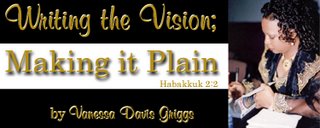
Whew! It's been such a long time...I wish I could say that I've been vacationing or chilling out which is why I've not updated this in a while. But the truth is, I've been working. Then when I finished, I was working some more. And I really need to hurry and get back because I have more work to do. What gives me joy is: The work I'm doing is either being shared with others right now, or it will be shared in 2007. And let me tell you, I'm so excited about what's coming beginning May 2007 (unless the date changes, it has been known to happen already). I considered writing some things here that are fresh in my mind, but then I decided I'd rather share a few writings on my own place that I've shared with others on theirs. I've been writing a "column" the past few months called Writing the Vision; Making it Plain. It occurred to me that there are some people who only visit blogs and they may never get to read what I've written posted or printed in other places. Let me set you up first. This is part inspirational and part educational. I wanted to give some nuggets for those folks interested in writing. But if any of you really know me (trust me, a lot of people think they know me, but they really don't have a clue), I care about everybody (okay, maybe not every single everybody, but a great many people) who have dreams. I know not everyone is interested in being a writer but many of you are interested in walking in your divine purpose and fulfilling your dreams (even in the face of your haters...yes, they are out there). So without further adieu--I'll post these writings for you to read at your leisure. Then maybe next time, I'll talk a little more about my new books coming out beginning in May 2007!Vanessa Davis Griggshttp://www.VanessaDavisGriggs.com


